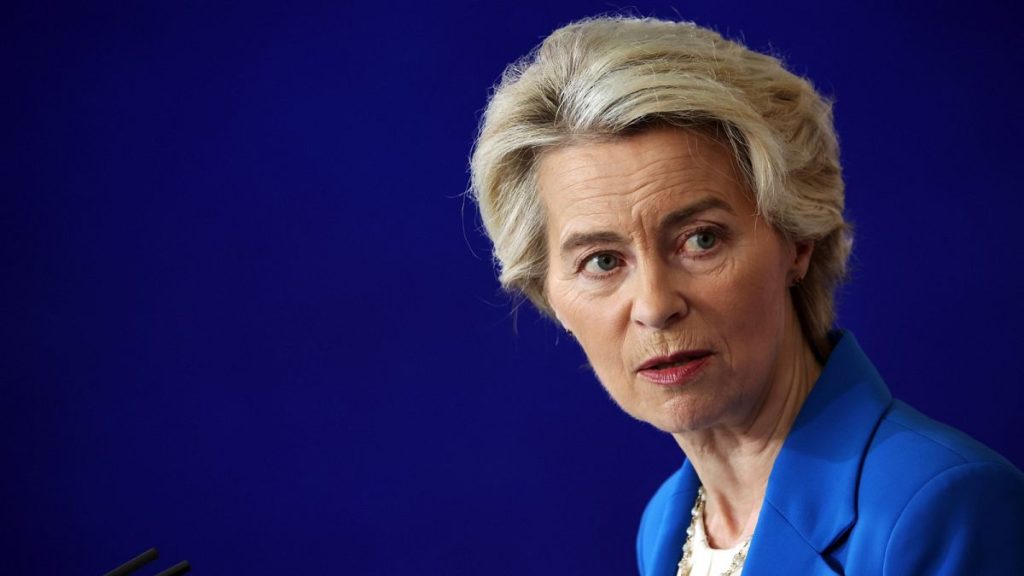The European Commission has shown support for offshoring migration procedures, in line with growing calls from member states. Ursula von der Leyen, the president of the European Commission, has given her strongest endorsement yet to the controversial idea of establishing “return hubs” outside of EU territory to transfer asylum seekers whose applications have been rejected. This move was outlined in a letter von der Leyen sent to EU leaders ahead of a two-day summit in Brussels where migration would be a key topic of discussion. The letter, which was shared with the media, put forth several proposals to reduce the number of asylum applications and counter irregular border crossings and human smuggling, signaling a shift to the right in Europe’s migration debate.
One of the proposals in von der Leyen’s letter is to explore “innovative ways,” a term often associated with offshoring asylum procedures like Italy has done with Albania. This controversial Italy-Albania protocol has been criticized for undermining the asylum process and weakening judicial oversight. Von der Leyen’s letter indicates that the results of the Italy-Albania deal could influence the future of EU migration policy. The president also advocates for designating “safe third countries” at the EU level to prevent disagreements between member states and speed up deportations, which currently have a low success rate. The slow rate of deportations has brought migration back into the political spotlight.
Von der Leyen’s letter also addresses demands from a group of 17 European countries for a “paradigm shift” in deportations, where non-cooperation would have consequences and be sanctioned. The president pledges to introduce legislation defining clear obligations for cooperation in return processes and to use digitalization and mutual recognition of decisions by member states to streamline returns. She supports calls for new rules to detain and expel individuals posing a threat to public order and security, as well as using visa and trade policies to encourage non-EU countries to accept their citizens after failed asylum applications. The lack of cooperation from non-EU countries has been cited as a major reason for the low rate of deportations.
In addition to offshoring migration procedures and streamlining deportations, von der Leyen’s letter suggests signing more EU-funded deals with neighboring countries, imposing stricter rules on human trafficking, enhancing responses to hybrid attacks, and providing more humanitarian aid to countries in the Middle East. The president emphasizes that any actions taken by the EU should be in line with its principles and values, international obligations, and the protection of fundamental rights, ensuring sustainable and fair solutions for migrants. However, NGOs have raised concerns about offshoring migration and questioned the implications of these controversial proposals on the right to seek asylum in the relevant jurisdiction.
Von der Leyen’s letter was issued on the same day that the European Commission criticized Poland’s plan to temporarily suspend the right to asylum within its territory. This move comes at a time of heightened political tension, with several governments showing increasing assertiveness in their efforts to control migration flows. As discussions on migration continue within the EU, the proposals put forth by von der Leyen suggest a significant shift to the right in Europe’s approach to addressing asylum seekers and irregular border crossings. The outcomes of these discussions and potential policy changes could have far-reaching implications for migrants and the overall migration landscape in the EU.













